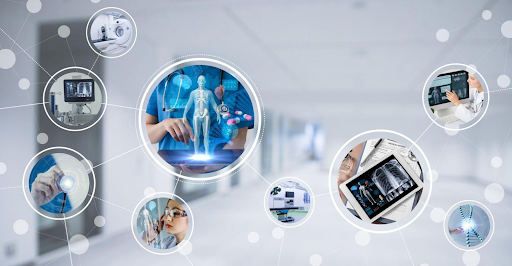The United States has the highest healthcare expenditure in the world. Medical device innovators, investors and manufacturers get the environment they require to innovate, protect their innovation and develop and design efficient medical devices that improve healthcare outcomes and reduce cost. This environment is ideal to build and grow a medical device startup. In addition to this environment, medical device consulting firms also help to build successful medical device startups with consulting services including:
- Voice of the customer
- Market analysis
- Value analysis
- Key opinion leader identification
- Risk analysis
- Competitive analysis
- Positioning analysis
- Financial valuation
- Exit for medical device startup
- Medical device startup business plan
- Portfolio analysis
It requires the following to grow a medical device startup:
- A Well-rounded Team
- Customer and scientific validation
- A solid regulatory strategy
- Premium lab space
- Funding strategy
- Compelling story
A Well-rounded Team
It requires a well-rounded team of scientists and business executives to run a medical device company. Developing a medical device from an idea requires months or even years of effort as well as the correct tools. The medical device company requires scientific expertise, research and analysis skills and basic business sense and skills. A well-rounded team includes:
- Scientists
- Technologists
- Executive-level leadership
- Support staff
The company requires diverse personalities and skillsets.
Customer and Scientific Validation
A medical device is developed to address clinician’s needs. It is critical to understand their expectations from the device and brand. Medical device companies rely on medical device consulting firms and to secure customer feedback through medical device market research and analysis with the help of tools and solutions like Conjointly’s Conjoint Analysis Tool. It is critical to test the ‘concept’ and determine its value before developing the device. The medical device company can position itself well. Early iteration in the medical device development process gains valuable feedback on the features and benefits clinicians desire. If they are going to be conducting market research in multiple countries, or in communities that do not share the same mother tongue, medical device companies must also make sure they get professional translations for medical device manufacturers so they can make sure that customers both understand exactly what they are meant to do with your device and that all feedback received is accurate.
The benefits of understanding your customer base cannot be underestimated, and you should consider market research a priority. If you decide to use the conjoint analysis method for your company but are not sure where to begin, you can visit the site of an established medical business such as idrmedical.com where they provide a comprehensive guide to the process and offer services to help you implement it in your business.
A Solid Regulatory Strategy
Before a medical device is commercialized, it goes through the FDA and other regulations. A medical device company requires a fundamental regulatory strategy to address clinical testing, regulatory filing and other steps in the process. This strategy maps out a timeline and related finances. The company can work with medical device regulatory compliance consulting firms to seek expertise. These consulting firms help medical device developers in creating solid regulatory strategies. If the company has target markets across the boundaries, it also has to ensure compliance with multiple regulatory bodies. Regulatory approvals are critical for medical device development and marketing.
Premium Lab Space
Many medical device companies require premium wet lab spaces for medical device development, clinical trials and testing. The company can also develop its own space. Some medical device companies are affiliated with academic universities or hospitals. The medical device developer can use these facilities.
Funding Strategy
It requires money to design, develop and market a medical device. The medical device company requires a realistic funding model that includes personal, angel or venture capital. The funding model also includes the timeline for acquiring funds. To secure funds, the company needs to attract investors. Investors invest in technologies that have the potential to secure the highest return on investment. Investors require statistics to ensure that the device is investment-worthy. Medical device consulting firms conduct medical device market research and analysis to show that the device under consideration for development is desired by a large market segment. Medical device competition analysis helps in developing a device that is more efficient and affordable than other offerings in the market. Investors invest in an efficient technology that also reduces healthcare costs.


